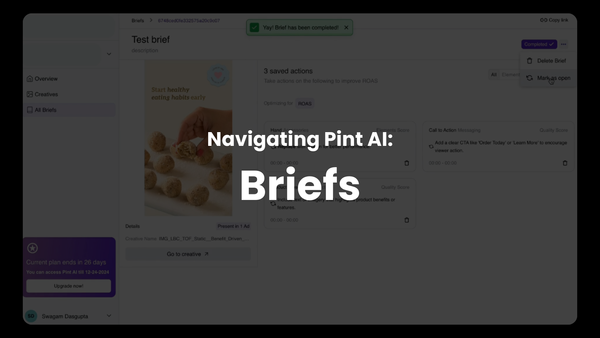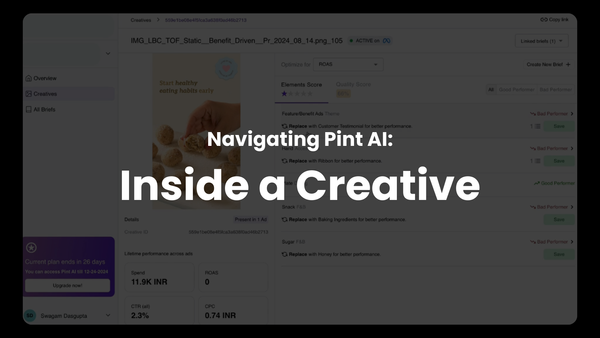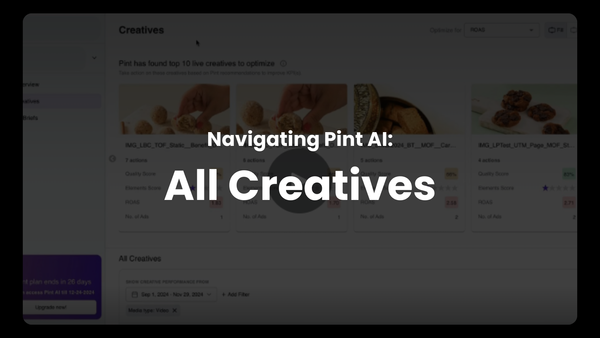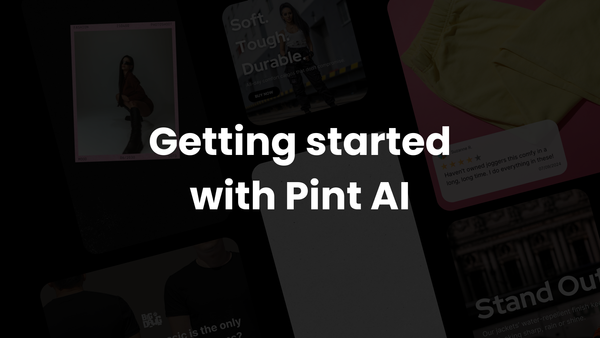Pint AI Product Updates: Week 11
Everyone faces challenges; so do we!
Hey there!
While the product building is ongoing, we thought of making this edition of our updates slightly different. For all the updates so far, we have been writing about the exciting progress of our development. But looking back, we've never really spoken about the challenges we faced/are facing during this process.
And so, this edition is all about that — challenges, hiccups, and the dirty parts of building a product.
Meta APIs are whack
Starting our build with Meta as the first channel was a no-brainer for our team; across our conversations, Meta and its networks remain the most popular channels for advertisers.
Now we knew tackling the Meta APIs would be tricky; lots of our fellow developers who worked with the APIs told us as much. But once we started diving into this, we started understanding just how tough it would be.
- Outages on Meta APIs are super common. One day, we're getting a steady inflow of data from the APIs, and the next, they're returning 'Unavailable Endpoint' messages. This makes things frustrating and confusing because we're checking to see if the requirements to access an API have changed or whether the API itself is going through some fixes.
- Meta access is volatile. There are threads upon threads on Reddit about how Meta has randomly blocked certain developers' access, without explanation. These developers then get bounced around from one customer support exec to another, without any real help. While this hasn't happened to us, it's something that we're keeping an eye out for.
- Finding the source of a video can be tough. We're currently sorting through two kinds of ads; those that are boosted posts from a Facebook page, and those that are launched ads from the ads manager. For the latter, we know exactly which campaign, ad group and ad a certain video falls under. But when it's boosted, the media is owned by the page, and not the ad account. This means we need separate access to the page as well, because boosted posts aren't covered under an ad account.
Even though these problems are tricky, in our experience, they are solvable. But as a general practice, we're preparing actions that have to be taken if these problems constantly arise, to ensure there is no burden on you, the user.
When design & development becomes design vs development
When we started off, we were always very conscious about design and development seeing eye to eye in terms of the current needs of the tool, while planning for scale.
What we've realized over the last couple of months, is that this balance is quite delicate 😅

Even though the teams are aligned on one core aspect — the user is the most important consideration, there are always points of friction about designing for scale versus developing for now.
Dealing with scale is the ultimate bottleneck. But developing for scale takes longer; we've seen it interrupt quicker, iterative prototyping, which we believe is crucial. On the other hand, when you're designing a tool like ours from scratch, designing for the ultimate vision allows us to make better calls on what's needed now versus what can be pushed down the line.
And as we build more, I suspect maintaining this balance will only be more crucial. There is no 'correct' way in our opinion; it really all depends on the nature of the customers, the kind of tool you're building, and the money you have in the bank.
We do want to build quick and get the tool into your hands as soon as possible.
But we also want to build well, such that when you actually use the tool for the first time, you can immediately see some value.
These are only some of the challenges that we face; there are smaller, day-to-day things that keep popping up now and then, and more often than not, we tackle them as soon as they come up.
Luckily, we never went into this thinking it would be an easy ride to build and deploy this tool. So we've made it a habit of sorts to document the challenges we face, so that the next time something similar comes up, we know the fixes like the back of our hand.
And the challenges that we're currently facing — they're all good problems to have! I personally love execution-level problems because that means you're out of the problem validation stage, and your idea actually has the strength to turn into something valuable.
And valuable is exactly what we're building Pint AI out to be.
Until next time!
Sourya Reddy
Co-founder, Pint AI





